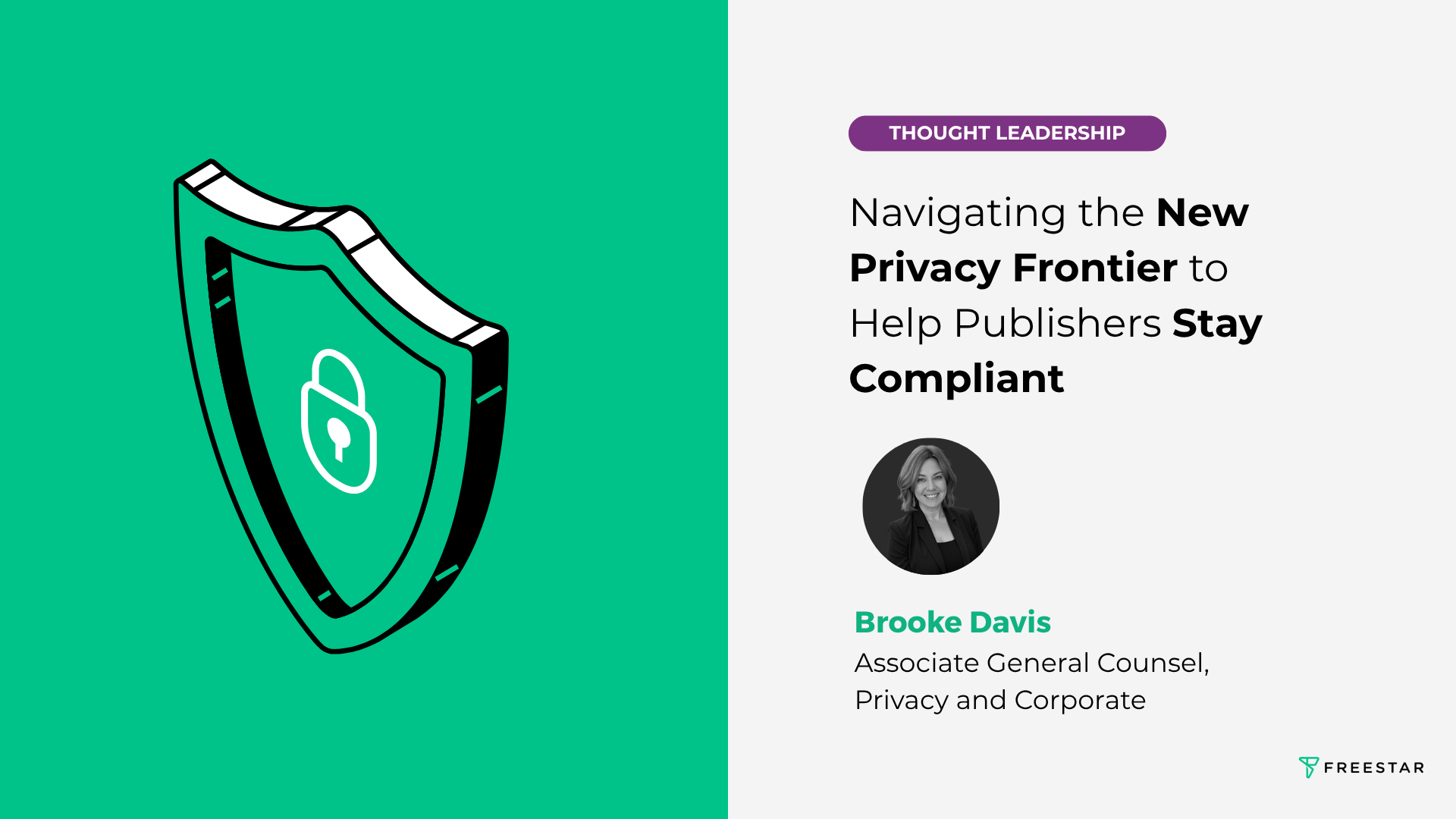Q4 is just about here, which means every publisher is asking Freestar the same question: how can we maximize revenue in these next few months? Don’t worry, Freestar has you covered with our latest post on Q4 monetization!
You’ll notice that number five on the list of top ways to improve Q4 revenue for publishers is through strategic monetization of hashed emails. For most publishers, collecting and hashing emails has become a strategic necessity for future-proofing monetization. Hashed emails are the gold standard for first-party monetization, giving publishers a durable, privacy-safe way to connect audiences with advertiser data.
Hashed Email Monetization Performance
Authenticated traffic consistently outperforms anonymous traffic, often delivering 20–40% higher yields. Passing hashed emails is one of the most effective ways publishers can unlock premium monetization heading into Q4.
Email addresses have a special importance in the world of ad targeting by providing a privacy-safe way (hashed = scrambled and 100% unidentifiable) to identify marketable attributes about the user without knowing who the user is.
Freestar publishers, like Reuters, Signup Genius, and Meetup, collectively pass between 3-5 million encrypted email addresses a day, that are then passed to premium ID partners, like Liveramp ATS, The Trade Desk’s UID 2.0, and Google PAIR, for a more personalized and premium ad experience.
Publishers who pass hashed emails to Freestar are unlocking premium demand, higher CPMs, and stronger advertiser relationships. But some still wonder, is it worth it?
Short answer — YES! But keep reading to discover the most frequently asked questions from publishers about hashed emails. Be sure to scroll to the very end to explore Freestar’s monetization opportunities for this valuable data point.
The FAQs of Hashed Emails
What are hashed emails?
Hashed emails are email addresses scrambled into a fixed-length string of characters using a cryptographic hash function. This process converts the original email address into a unique identifier that cannot be connected back to the individual, ensuring the user’s privacy is protected.
We have a set of easy instructions that our publishers implement to pass us their email data. We explain it to them, as a process that inputs a normal email (john.doe@gmail.com) and outputs an encrypted identifier (123kjxxx). This new identified becomes the ID that buyers target and activate against. Data is still available about that user based on their activity for them to target — user is female, visited sephora twice last month, and shops for small kids) but there isn’t a way to know who the user truly is.
Why are they used?
For advertisers, hashed emails allow them to match audiences without exposing any personally identifiable information (PII). With third-party cookies completely unavailable in Safari and Firefox, hashed emails are particularly valuable in these environments from a monetization perspective.
For publishers, this is a key piece of information connecting them to their users. You should be heads down focusing on providing content, services, and products that are so valuable that people will gladly give you an email address in exchange. Decades before first-party data strategy, there was newsletter strategy. As publishers began focusing efforts on newsletter programs, email addresses were the logical data point to collect. This approach has continued into the world of first-party monetization, as the easiest data piece to scramble, make unidentifiable, and continue to activate on.
It’s important for users to remember, the goal for advertisers and publishers alike is an improved experience — for them! When done correctly, showing relevant, premium ads enhance the user experience of any website. No one likes getting to a page and seeing low-quality ads that aren’t relevant to their lifestyle.
TLDR; Hashed emails are used because they give all parties a privacy-safe way to identify and connect users across different platforms, particularly valuable in environments outside of Chrome, where third-party cookies are no longer available.
How does hash email monetization work?
With our publishers and their hashed emails, Freestar doesn’t ever see or store the email addresses. By this point, users have already provided their email to the publisher, either by logging into the website, registering for a newsletter, accessing walled content, or making a purchase. The publisher collects the email in plain text. The user has also already provided consent for use.
Next, the email is hashed. This happens on the publisher side, with easy instructions to put the email through a one-way cryptographic function. In not so professional terms, this will scramble the email into a hashed string of characters. Then the publisher passes the hashed string of characters to Freestar, but in the case of no outside ad monetization partner, the publisher would pass this data onto whatever ID monetization partners they choose for buyers to activate on.
We then pass the hash to the applicable ID partners who are able to monetize them at a premium for an additional 15-20% lift on CPMs. But before any dollars are made, there must be a match for buyers to activate against. Once a march occurs, the advertiser can now target the user with relevant ads even without third-party cookies.
Can hashed emails track users from site to site?
Yes. Similar to third-party cookies, hashed emails can be used to recognize users across different sites and devices. For example, if a user logs in with their email on multiple sites, the hashed version of their email acts as a consistent identifier without revealing the actual email address.
What is Freestar doing to help publishers maximize monetization of email addresses?
Expanding deterministic user IDs presents a significant opportunity for publishers to boost ad inventory value, especially as third-party cookie coverage declines. Freestar’s hashed email (HEM) passthrough allows publishers to share a hashed version of a user’s email with vendors, such as Prebid User ID modules and bidders.
As publishers enhance their first-party data strategies and increase the number of collected emails, Freestar helps monetize these at premium CPMs with quality advertising deals. Publishers can pass their hashed emails to major identity providers for monetization.
This solution maximizes revenue by unlocking the full spending potential from advertisers, working with trusted providers like LiveRamp and The Trade Desk, whom buyers rely on to target users.
If you’re already partnering with Freestar, reach out to your support team for more information on our hashed email solution.
By adopting hashing techniques, organizations can build trust with their users, mitigate risks, and uphold their responsibility to protect sensitive information.
Originally published on June 18, 2024





